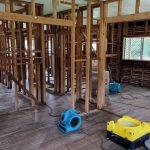When you embark on a drywall installation project, exploring various techniques and strategies can significantly enhance your workflow and results. Whether you're focused on upgrading a room or entirely replacing existing drywall, having a solid foundation of knowledge is paramount. Before you hire a handyman, it's crucial to understand several key factors that can help you avoid common pitfalls. This includes verifying the handyman’s licensing, comprehending the cost of drywall installation, and selecting a qualified professional who meets your unique needs and expectations for the project.
Essential Steps for Obtaining a Handyman's License for Professional Drywall Installation
For those aiming to break into the drywall installation industry, acquiring a handyman's license should be one of your primary objectives. While not universally required across all states, many jurisdictions necessitate this credential to ensure compliance with local regulations. To determine if you need a license, start by researching the specific licensing requirements applicable in your state.
For minor tasks like painting or performing small appliance repairs, most areas do not necessitate a handyman’s license. However, for larger-scale projects, you may be required to obtain separate licenses for each specific task, depending on local laws and regulations. Understanding these nuances can save you from future legal complications.
In addition to securing a handyman's license, obtaining comprehensive insurance is crucial. A contractor's liability and property damage insurance policy is designed to protect you against potential injuries or damages occurring during the project. If you intend to hire workers, acquiring workers' compensation insurance is also essential. Reviewing construction plans thoroughly will enable you to estimate material and labor costs accurately, allowing you to submit competitive bids while ensuring high-quality standards.
When applying for a handyman's license specifically tailored for drywall installation, certain criteria must be met. For example, in Georgia, applicants are required to pass examinations covering trade, business practices, and law. Furthermore, having a minimum of two years of hands-on experience as a handyman, along with proof of general liability and workers' compensation insurance, is a necessity. If your projects exceed $1,000 or involve obtaining construction permits across different jurisdictions—such as in Hawaii—you will also need a general contractor's license to operate within legal parameters.
While a handyman's license for drywall installation is not a mandatory requirement everywhere, it is highly recommended if you plan to take on more extensive work beyond simple repairs and installations. Each state has its own set of requirements, usually involving liability insurance and a handyman's license to mitigate potential legal issues and property damage claims.
To succeed as a handyman, it’s vital to familiarize yourself with the varied standards and licensing requirements that differ from state to state. Significant discrepancies often exist regarding handyman licenses at the local level, highlighting the need for thorough research if you intend to handle a wide range of projects competently and efficiently.
A Comprehensive Overview of Drywall Installation Costs
The total cost of drywall installation is influenced by a multitude of factors, including the scope of the project and the types of materials employed. For instance, larger holes may necessitate full drywall replacement, significantly impacting the overall cost. Moreover, the quantity of materials needed will directly affect both material and labor expenses, making it essential to accurately gauge the size and complexity of the job. A skilled handyman can typically tackle smaller tasks in just a few hours, making it a viable option for many homeowners looking to save time and resources.
In contrast, extensive drywall repairs stemming from substantial holes or water damage will require more time and effort. In severe cases, it may be necessary to remove and replace entire sections of drywall, a process that necessitates the expertise of a professional with specialized skills, which can consequently lead to increased overall project costs.
Effective planning and preparation are vital components of drywall installation. A detailed checklist of required supplies and tools is essential, with the overall cost depending on both the project’s size and complexity. Handymen often require additional labor support, especially for larger jobs. Furthermore, the installation cost may vary based on whether prep work and cleanup are included in the scope. Complicated ceiling designs or numerous corners can also escalate material and labor expenses, underscoring the importance of meticulous planning.
The type of drywall selected will play a significant role in determining the total installation cost as well. Standard drywall is widely used in most commercial constructions and is available in various widths and thicknesses, allowing for flexibility to meet specific project requirements.
As the scale of tasks increases, expenses can accumulate rapidly. The overall cost largely hinges on the project’s size and intricacy. While smaller jobs may incur a higher cost per square foot, drywall remains an economical choice when compared to other construction materials, providing a balance of quality and affordability.
Although hiring a handyman may seem like a cost-effective option, enlisting the services of a drywall specialist can yield substantial benefits. Specialists possess the necessary expertise for various tasks, from removing popcorn ceilings to constructing drop ceilings. Their experience with taping joints and applying textures guarantees a higher quality of workmanship. Additionally, they are adept at addressing issues such as water damage, hole repairs, and more intricate texturing tasks.
When selecting a drywall contractor, it's imperative to secure a detailed contract that explicitly outlines the project scope and associated costs. This contract should specify the number of drywall sheets required, the materials to be used, and a comprehensive breakdown of labor and material expenses, ensuring transparency and clarity throughout the project.
Crucial Factors to Consider When Choosing the Right Handyman for Your Drywall Projects
Before finalizing your decision on a handyman for your drywall installation needs, it’s essential to ask several pertinent questions to ensure you make an informed choice. Start by inquiring about the estimated timeline for project completion. Even highly skilled drywall installers may have varying schedules, so understanding the timeframe is crucial in preventing dissatisfaction once the project is finished.
It's advisable to interview at least three potential handymen before making your final selection. During these discussions, ask about their relevant experience and request references from past clients. Confirming that the handyman possesses the necessary skills and tools for the job is vital for achieving the best possible outcome. Additionally, ensuring that their pricing fits within your budget is crucial for a smooth and satisfactory experience.
Next, assess the potential costs related to drywall installation. By comparing bids from different contractors, you can gain valuable insights into the typical rates for your specific project. A reputable contractor will present a comprehensive cost breakdown that includes all materials, supplies, and any additional expenses, offering you a clearer understanding of the financial commitment involved.
Verifying credentials and insurance is another critical step prior to hiring a handyman. Obtaining a written contract along with references will provide you peace of mind and help confirm that the handyman is suitable for your project. Requesting examples of their previous work can further bolster your confidence in your decision, ensuring you select a skilled professional.
An effective handyman should possess a diverse skill set, enabling them to manage various tasks beyond just drywall installation. For example, if your ceiling has a hole that requires drywall work, a proficient handyman should also be capable of handling related tasks such as installing new light fixtures or repairing popcorn texturing.
Thoroughly check the handyman's experience and references before making your final choice. An experienced handyman is more likely to execute the job competently, thereby increasing the chances of a successful project outcome. It’s prudent to avoid contractors who rely on high-pressure sales tactics or have inflated advertising budgets, as these approaches can often lead to subpar results.
Keep your budget in focus when hiring a handyman for drywall installation. An efficient handyman should be able to complete the job in a timely manner while respecting your property. They should also prioritize cleanliness, ensuring that the workspace remains tidy after the project is completed, enhancing your overall satisfaction.
A handyman who is knowledgeable in plumbing and electrical systems is an excellent choice for addressing leaks or undertaking related tasks. They can also assist with a wide range of projects, including hole repairs, light painting, deck repairs, and drywall installations, offering a well-rounded approach to home improvement.
Finding a reliable handyman in your area is entirely achievable. Investigate online reviews and seek recommendations from friends and family to identify trustworthy professionals. Additionally, don’t hesitate to ask your handyman for client references to validate their reputation and capabilities, ensuring you make the best choice for your project.
The post How Does a Handyman Do Drywall Installation? appeared first on https://gqcentral.co.uk
The Article Drywall Installation Techniques by a Handyman Was Found On https://limitsofstrategy.com
The Article Handyman Tips for Effective Drywall Installation Techniques First Appeared ON
: https://ad4sc.com







Comments are closed